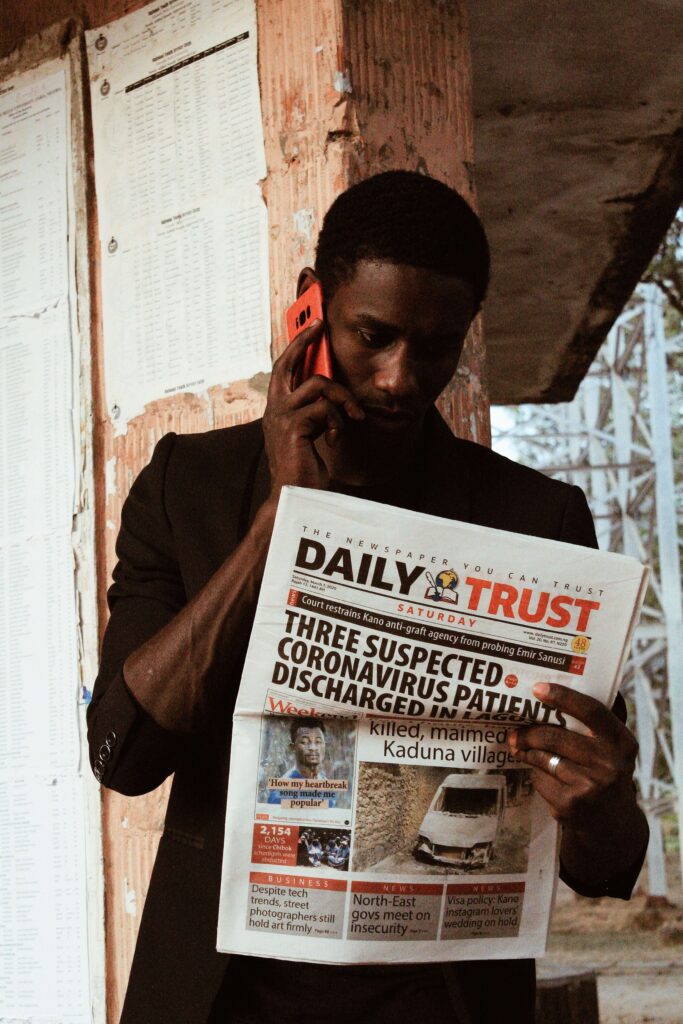
It has been said that the news is the news. Sometimes, this is unequivocally correct — if a president is assassinated; if a sports team wins a trophy; if a war breaks out; if a famous old celebrity passes away. Beyond this, however, is another dimension to this kind of information. There is ‘the news’ and there is how, and from where we receive that news. Although facts are facts, the news is rarely that simple and never that straightforward. From the US to the UK, the Middle East to the Far East and beyond, consumers have a choice about where they get their news, and in many cases, how that news is delivered to them from a political perspective.

Stories and incidents may be the same, but each news channel presents them differently, at least editorially if nothing else, making the same story different, allowing us to decide how the narrative we choose to hear fits our position or informs our existing views on a matter. If it were so, we would not have the almost innumerable news channels and media outlets that compete, at least in the Western world, where news is not state-sponsored, as it were. It is just like you can play the same games on various online sites with various cryptocurrencies but you like to play casino with Ethereum as it matches your preferences. So, it is the same with news channels that speak to your global viewpoint, all accessible online, on television, and often with global access.

With any news narrative, of course, where we get our information, and the sources we decide to trust can be critical to our understanding of the events around the world or the story we are being told. It has, of course, been ever thus. Even before the dawn of the global news repository and infinite information source that is the internet, newspapers each had their own headline or at least their own take on it, and every television newscast would approach things their own way, often down to editorial leanings. Whether that is good or not is another debate, of course, and whether news should be placed in order of importance by media magnates or editors is a heated topic.
Multiple sources can be confusing or confirming…

For many, this choice is important. Not only do we have the choice to digest the news from multiple sources, perhaps helping cement and corroborate the empirical facts, but we also have a chance to take in the opinions of others. It would be rare to see or hear a news story that creates unanimity of praise or unquestioned condemnation, such as the pluralistic and complicated world in which we live. Sometimes, the question is not whether to find that one, unimpeachable news source, it is to work out what choice from the multiple options available gives the most rounded picture of the story, the event, the disaster, the situation.

With every international news story comes a national perspective, with every political event comes a political position, and on each occasion, the multiple sources providing and editorialising the story itself can help confuse or confirm. To put it mildly, the news landscape can be both a blessing and a curse, a major source of information but also a potentially complicated labyrinth of information and opinion. For some, no number of websites and news outlets is too many, for others, there is one that they trust and the only source of their information.

Others, however, perhaps the majority, fall somewhere in the middle of these two extremes, using multiple sources to confirm information. That is not to say those sources cannot be contradictory or confusing, but it may at least cement certain elements of a story and confirm the main facts, though this is never a guarantee of course. To confirm or to confuse, that is the question.
Confirmation bias or independent news sources: can both be valid?

Whether it is consciously done or subconsciously, we often read news from sources that we know will reinforce our existing political, social, economic or even moral position. This is known as confirmation bias, where we look for content that will back us up rather than challenge what we think. In other cases, many people will deliberately seek out disputation, i.e., look for independent sources of news that may draw different conclusions or hold a different position than their own.

When it comes to which of these approaches is more valid, there is no single answer. Indeed, perhaps it is more balanced to suggest that both approaches have some defence to be made for them. We all know that not all news sources are accurate, reliable, or even honest, especially in the online world where disinformation, misinformation, and conspiracy theories abound. But what does this mean? Well, in some ways, it means that we can be informed or misinformed regardless of whether we use one news source of fifty, but in other ways, the reverse is true.

Overall, whether we look to confirm our views with a specifically chosen news source, multiple sources with the same standpoint or editorial position or keep an open mind and traverse news sources that are varied and opposing, where we get our news is always critical. With access to more information than ever, sources become both more varied, and sometimes more unreliable, making where we get our news important for our perspective, but critical when it comes to knowing what the true story really is.

